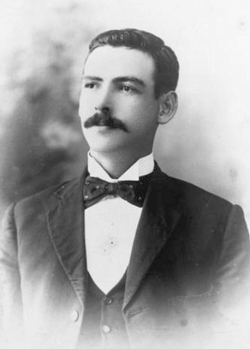Millais Culpin

- Born
- 6 January 1874
- Died
- 14 September 1952 (age 78)
Millais Culpin was a British jack of several trades, becoming well respected in the fields of teaching, entomology (the study of insects) and psychology.
Culpin was born on the 6th January 1874 in Hertfordshire, England where he grew up and joined a group of amateur naturalists, developing a life-long passion for insects.
When he was 25, Culpin moved to Brisbane with his family where he briefly became an assistant head teacher before re-positioning himself as a teacher in a provisional school. He spent his weekends and holidays doing what he loved, exploring the countryisde, gathering insects, some of which he mounted for the school museum. He sent letters to his English colleagues which offered a rare insight at the time into life in the tropics. These letters were published many years later in 1987.
In 1897 he resigned from his position and moved to London to study medicine at London Hospital. He graduated and went back to Brisbane for a year to work at his fathers practice. He later returned to the University of London to resume his studying. Here in London he worked and specialised in surgery and became a member of the Fellowship of the Royal College of Surgeons in 1907.
In 1907. Culpin travelled to Shanghai as a senior surgeon in the Shanghai-Nanking Railway Hospital and stayed for several years. It is said that when there, he requested for the “best nurse” from London to be sent over to Shanghai, and the nurse who was sent was Ethel Maude Bennett who would later become his wife when they married in 1913. Their only child, Frances Millais Culpin, was born in New South Wales on 28 March 1914.
During World War I, Culpin served in the Royal Army Medical Corps and, upon witnessing many soldiers suffering from ‘shell shock’ and various post-traumatic stress related issues, he published a paper on war neuroses its subsequent psychological manifestations.
In 1919, Culpin returned from the Medical Corps and gave up surgery, obtained his MD and dedicated himself to psychology, becoming a lecturer at London Hospital. He later became a Professor in Industrial and Medical Psychology at the London School of Health and Tropical Medicine.
Culpin retired in 1939, but remained active academically, even acting as President of the British Psychological Society in 1944.



